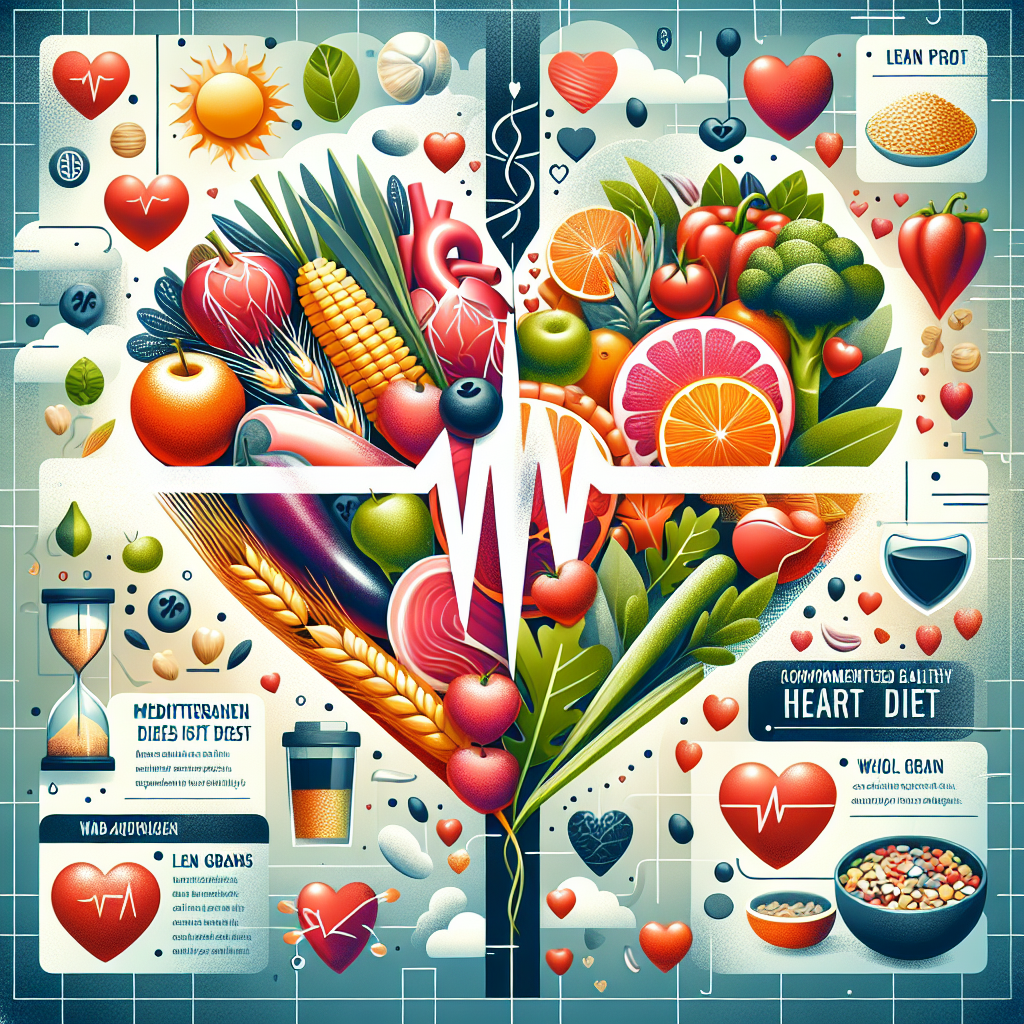
The DASH-Mediterranean Hybrid Diet: A Doctor-Recommended Path to Better Heart Health
In an era where diet trends frequently come and go, many cardiologists are turning to a scientifically validated solution: the DASH-Mediterranean hybrid diet for heart health. This effective approach combines the blood pressure-lowering benefits of the DASH diet with the cholesterol-supporting, anti-inflammatory qualities of the Mediterranean way of eating. Together, they offer long-term wellness with meals that are both nutritious and delicious.
According to the Journal of Clinical Hypertension (2023), individuals who adopted this hybrid diet experienced reductions in blood pressure comparable to the effects of early-stage hypertension medication.
Why Combine the DASH and Mediterranean Diets?
Both the DASH and Mediterranean diets are widely endorsed by the American Heart Association for reducing cardiovascular risk. Merging the two diets brings together the best of both worlds:
– The DASH (Dietary Approaches to Stop Hypertension) diet emphasizes lowering sodium intake, increasing potassium levels, and balancing macronutrients to reduce blood pressure.
– The Mediterranean diet supports heart health with healthy fats, whole foods, and a flexible, culturally diverse approach that promotes longevity.
“By combining DASH’s structured nutrition goals with the Mediterranean diet’s whole-food focus, we create a synergistic eating plan that benefits both blood pressure and cholesterol,” explains Dr. Alicia Greene, a board-certified cardiologist from Cleveland Heart Institute.
Clarifying Example: Think of it as blending the effectiveness of a medical prescription with the pleasure of a home-cooked meal.
How the Hybrid Diet Works in Daily Life
The DASH-Mediterranean diet promotes whole, nutrient-rich foods without being unnecessarily strict. Here’s how you can put it into practice:
1. Make Fruits and Vegetables a Priority
Aim for 8 to 10 daily servings. Try a spinach and berry smoothie for breakfast, lentil salad for lunch, and roasted vegetables for dinner.
2. Choose Whole Grains
Replace refined grains with brown rice, quinoa, oats, and whole wheat bread to maintain steady blood sugar and improve digestion.
3. Use Herbs and Spices Instead of Salt
Keep sodium intake between 1,500 and 2,300 milligrams per day. Boost flavor with herbs like basil, oregano, garlic, and turmeric.
4. Embrace Healthy Fats
Include heart-healthy fats such as extra virgin olive oil, avocado, nuts, and omega-3-rich fish like salmon or sardines two to three times per week.
5. Focus on Lean and Plant-Based Protein
Build meals around legumes, tofu, fish, and poultry. Limit red meat to no more than once per week.
6. Limit Dairy to Low-Fat Options
Opt for low-fat milk, yogurt, and cheese with minimal additives and sugar.
7. Enjoy Wine Wisely
Up to 5 ounces of red wine, a few times per week, may support heart health when consumed with meals—but consult your doctor first.
Did You Know? The average American consumes over 3,400 milligrams of sodium daily—well above the recommended limit. Cutting back even by 1,000 milligrams can lead to measurable blood pressure improvements.
Backed by Science: Real and Measurable Benefits
Recent studies reinforce the effectiveness of this combined approach. A 2023 meta-analysis in the journal Nutrients found that integrating aspects of both diets led to:
– An average reduction in systolic blood pressure of 11 mm Hg
– A 10% drop in LDL (bad) cholesterol
– An increase in HDL (good) cholesterol
– Lower levels of inflammatory markers such as C-reactive protein (CRP)
– Improved body weight and fat distribution
“These aren’t minor changes—these results can significantly reduce someone’s cardiovascular risk profile,” says Dr. Miguel Herrera, a cardiovascular researcher at Johns Hopkins University.
Bonus Tip: This hybrid diet also helps improve insulin sensitivity, making it a valuable tool for those managing or at risk for type 2 diabetes.
If you’re exploring ways to support cardiovascular-linked conditions like erectile dysfunction, services like EDrugstore.com offer discreet, doctor-reviewed telemedicine options.
A Lifestyle That Is Sustainable and Adaptable
A standout feature of the DASH-Mediterranean lifestyle is its focus on long-term success. Unlike many restrictive diets, this hybrid emphasizes:
– Progress over perfection
– Mindful eating habits
– Flexibility across various cuisines and cultural preferences
Example: Craving Mexican food? Go for veggie fajitas with black beans and guacamole. Prefer Asian-inspired meals? Tofu stir-fry with brown rice and low-sodium sauce fits perfectly.
“Many diets fail because they are too restrictive or unrealistic,” says Dr. Greene. “The DASH-Mediterranean hybrid is different because it meets people where they are—both culturally and flavor-wise.”
Getting Started: Simple, Actionable Tips
Interested in trying the DASH-Mediterranean way of eating? Start with these beginner-friendly steps:
– Choose extra virgin olive oil over butter or margarine
– Include 2 to 3 different vegetables in every meal
– Purchase low-sodium canned goods and rinse beans to reduce excess salt
– Aim to eat fatty fish like tuna or salmon twice a week
– Replace chips or cookies with walnuts and Greek yogurt for snacks
– Cook meals in bulk to minimize the need for takeout
– Take a 15–20 minute walk after meals to help with digestion and blood sugar control
These manageable habits can make a difference in as little as a few weeks—and are easy to sustain over time.
The Takeaway: A Smart, Sustainable Path to Heart Wellness
Heart disease continues to be the leading cause of death worldwide. Prioritizing your diet is one of the most effective ways to reduce this risk. The DASH-Mediterranean hybrid diet for blood pressure and cholesterol control offers a balanced, achievable solution that delivers real results without sacrificing flavor.
Whether your goal is to manage high blood pressure, improve cholesterol levels, prevent stroke or heart attacks, or maintain a healthy weight, this hybrid approach can help you get there—deliciously and sustainably.
Start slow. Stay consistent. Your heart, and your future self, will thank you.
References
– American Heart Association. (2021). Healthy Eating for a Healthy Heart. heart.org
– Siervo, M. et al. (2023). Effects of DASH-Mediterranean Hybrids on Blood Pressure: A Review. Journal of Clinical Hypertension
– Sofi, F., et al. (2020). Mediterranean Diet and Health Status: An Updated Meta-Analysis. BMJ
– U.S. Department of Health & Human Services. Dietary Guidelines for Americans, 2020–2025
– EDrugstore.com. (n.d.). High Blood Pressure: How Lifestyle Affects Performance. Retrieved from https://www.edrugstore.com/blog/


